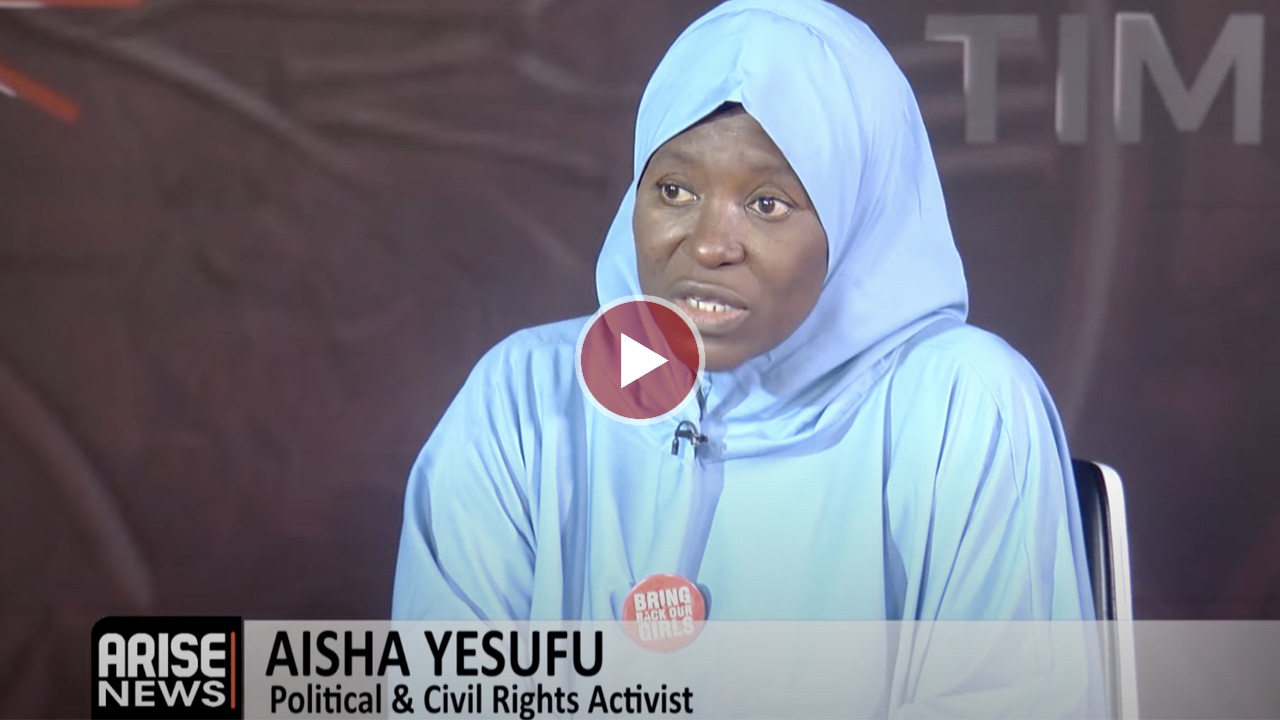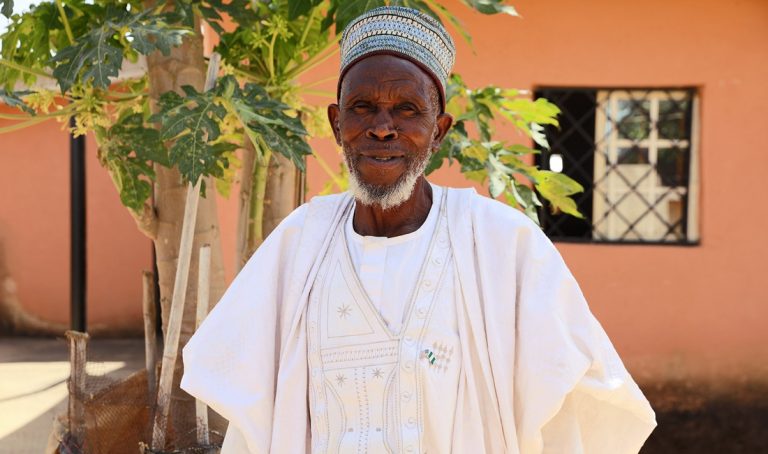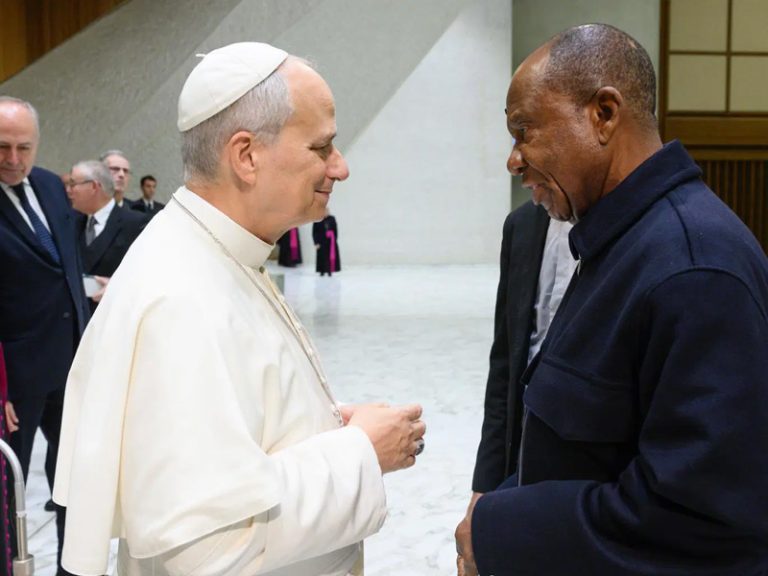

Political and civil rights activist Aisha Yesufu has described the Nigerian government’s handling of the October 20, 2020 #EndSARS protest as an act of state terrorism, saying the movement was “not a protest that died down, but one that was killed off with guns and bullets.”
Speaking on ARISE News on Monday, to mark five years since security forces opened fire on peaceful demonstrators at the Lekki Toll Gate in Lagos, Yesufu said the events of that night remain one of the darkest moments in Nigeria’s democratic history.
“It was killed off,” Yesufu said. “Guns were brought in, and military officers who should be protecting Nigerians and the territorial integrity of this nation decided to turn their guns on citizens — Nigerian youths who were merely reciting the national anthem and waving the Nigerian flag. It is heartbreaking that Nigeria could do this to its young ones.”
She said the #EndSARS shootings confirmed long-held fears among citizens that law enforcement officers could kill and face no consequences.
“On October 20th, 2020, we saw clearly that indeed, they can kill Nigerians and nothing would happen,” she said. “It’s so sad that the Nigerian government decided to behave like a terrorist government by killing its own citizens.”
Reflecting on her decision to join the protests, Yesufu explained that her participation was not driven by excitement but by a duty to protect young Nigerians facing police brutality.
“I came out because Nigerian youths were being attacked by the police,” she said. “I was there to give them moral support, to say, ‘If you’re going to shoot them, then you’ll have to put a bullet through me first.’ These were young people who were thriving despite the odds, being harassed simply because they had dreadlocks, laptops, or nice cars. That’s not a crime.”
She recalled that the 2020 protests were not the first of their kind, noting that she had also joined similar demonstrations in 2017.
“When the 2020 protest began, I joined from the first day in Abuja,” she said. “The protesters owned it. They were organised. It was their protest, not anyone’s to control.”
Yesufu described the #EndSARS movement as “a protest of survivors” — distinct from earlier protests that were often born of empathy.
“It wasn’t people fighting on behalf of others,” she explained. “These were victims of police brutality, or people who had lost loved ones. They came out to fight for their own survival in their own country.”
According to her, the movement also revealed the government’s brutality to a younger generation that had never experienced military rule.
“Those of us who grew up during the military era were used to this kind of repression,” she said. “But many of the #EndSARS protesters were born after democracy returned. For the first time, they saw what government could do to its own citizens.”
Asked whether the protest achieved any lasting change, Yesufu said the movement transformed civic consciousness and political participation, even if immediate reforms were not achieved.
“Nation-building is a marathon, not a sprint,” she said. “Before #EndSARS, only a few of us spoke up. Today, many more voices are challenging injustice, especially from the younger generation. There’s more political awareness now than ever before.”
She credited the protests with sparking the political awakening that led to the 2023 “Obidient” movement.
“After #EndSARS, when politicians mocked the youths and said, ‘If you don’t like what we did, remove us,’ young people took up the challenge,” she said. “That spirit birthed the Obidient movement. Yes, the election was rigged, but the awareness remains — and that’s a win.”
Yesufu, however, said she has refused to join public demonstrations under the current administration, which she described as “illegitimate.”
“I’ve said since they came in, I won’t protest to a government I don’t believe should be there,” she said. “That would be legitimising illegitimacy.”
She condemned the continued use of force against peaceful protesters and the government’s misplaced priorities.
“You see helicopters hovering over innocent citizens exercising their constitutional right to protest,” she said. “Yet these same forces cannot go after terrorists and kidnappers who are terrorising Nigerians. It’s an anomaly.”
Responding to criticisms that the #EndSARS movement lacked leadership, Yesufu argued that its horizontal structure was strategic and effective.
“There was leadership — just not the traditional kind,” she said. “People were organising, crowdfunding, managing health and security. They learned from Occupy Nigeria, where identifying leaders made it easy for government to negotiate or neutralise them. With #EndSARS, if you took one person out, the protest went on.”
She urged Nigerians to understand that protests extend beyond the streets to the ballot box.
“Citizens must realise that protest is also political,” she said. “If you vote and don’t protect your vote, you didn’t really vote. We need to elect leaders with competence, character, capacity, and patriotism — people who respect the rule of law.”
Yesufu said the persistence of state repression stems from institutional capture and citizens’ failure to hold leaders accountable.
“Institutions have been captured,” she said. “Even when the judiciary gives orders, they’re ignored. Until citizens start demanding accountability — both in the streets and at the polls — we’ll keep having criminals in office who destroy the country just to stay in power.”
Despite the painful memories of October 2020, Yesufu said she remains hopeful that the resilience of Nigeria’s youth will eventually force change.
“Yes, it’s slow,” she said, “but the young generation has been emboldened. They’re taking on issues, speaking out, and pushing back. That’s how nations are built — one act of courage at a time.”
Boluwatife Enome



